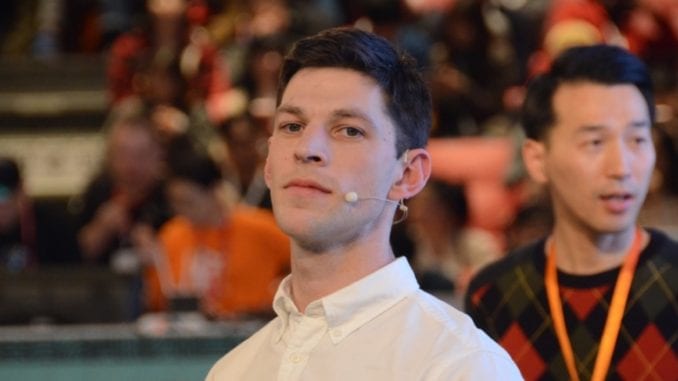
As Dale Harris’ year as 2017 World Barista Champion comes to a close, he looks back at some of the best moments and lessons learned.
BY CHRIS RYAN
BARISTA MAGAZINE ONLINE
Photos courtesy of Dale Harris
About this time last year, Dale Harris took home the top prize at the World Barista Championship in Seoul, South Korea. Since then, he has continued working his job as director of coffee at Hasbean Coffee, but has also traveled the world in his capacity as World Barista Champion. In part one of our interview on Monday, he reflected on the reality of being the WBC champ and his travels from the past year. Today in part two, he discusses lessons learned from serving as the World Barista Champion, and much more.
Chris Ryan: How did it feel to become an ambassador for coffee? Did you learn anything about what the World Barista Champion contributes to the coffee discourse and whether it helps the industry?
Dale Harris: Actually, I don’t think being an ambassador for coffee was a new thing—I think every barista that makes coffee in front of customers and talks about it is an ambassador. They are the ones disseminating the messages of specialty, they’re the ones on the ground floor, creating the message and the movement—curating and sharing it—so every barista is an ambassador.
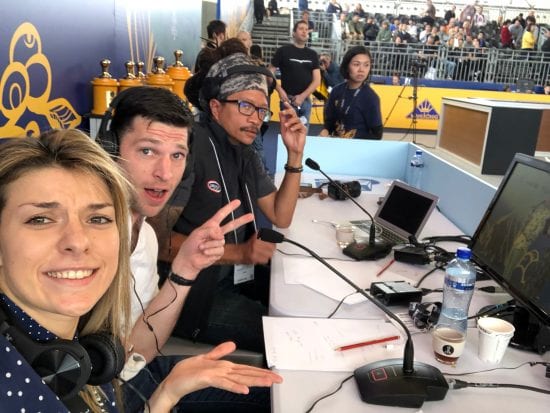
The difference, when you win a title or a trophy, is the number of people who listen to you when they’re not tasting coffee you’ve made: It’s an excellent amplification tool for whatever message you have. That is a great opportunity, but it’s also a great responsibility—if more people are listening, you have to be careful that the messages you’re spreading can relate to the whole industry’s ideas of coffee, or at least represent a diverse perspective. Maybe people will only talk to you, and they won’t talk to other baristas or actors along the coffee chain, and put unnecessary weight behind what you say.
I suppose one of the things I’ve learned was to be really careful about the words I choose, and to try to make sure that the things I talk about are useful to the audiences, As I travel, I try to be aware that not every community is in the same place, or has the same access to education or tools or resources or opportunities that I benefited from. Their customers are maybe in a different stage, or looking for slightly different things, and that doesn’t mean I need to compromise what I think coffee can be, but I need to find ways to bridge the two.
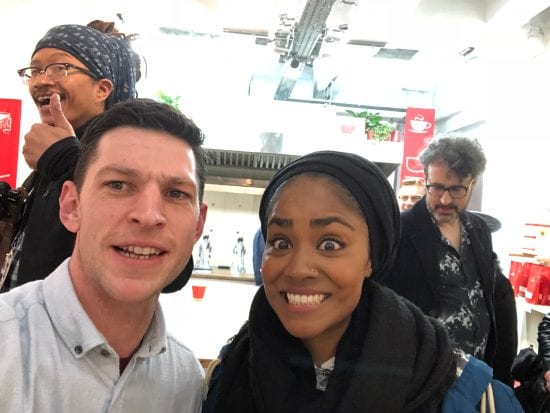
CR: Did your life change at all otherwise by winning WBC? Do you expect to see any future opportunities or changes still to come as a result of the win, or have you see most of the resulting action this year?
DH: One of the biggest changes in my life is that this year, I didn’t compete in anything. What was happiest and most exciting was: I didn’t miss it. Maybe the biggest change in my life is just that I don’t feel the need to compete; I am enjoying having won that competition and the experiences springing from it more than the need to compete in other things.
Lots of things in my life didn’t change because I didn’t want them to. I still work in the same job that I had before—it’s with a company that has values I believe in, working with a product and farmers that I believe in, and with a team that I’m really proud of. I do other work when it offers opportunities to learn or I think it will bring value in the community, but I don’t need to chase consultancy contracts to pay the rent, and I can be proud of all the little things I’m involved in.
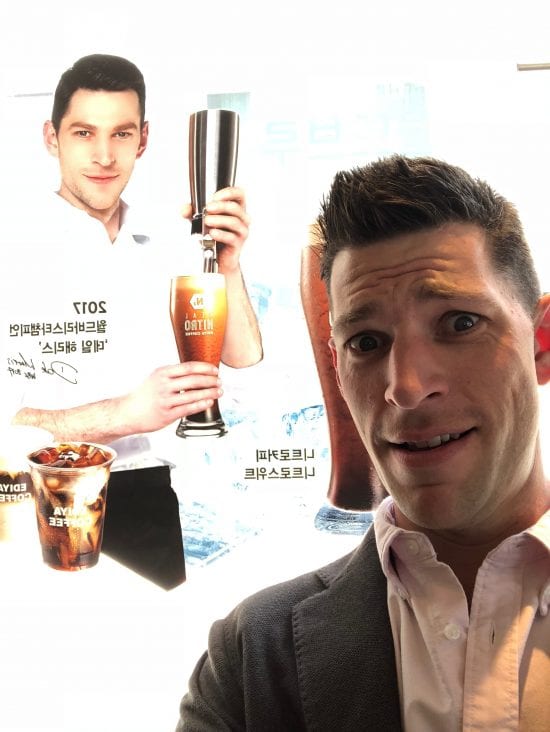
There are other huge areas of my life that keep me pretty grounded—my family, my relationships, my dog, where I live. I don’t think any of those things should change just because I’ve won a trophy for making coffee.
It remains to be seen how many opportunities will be there now that a year has passed and we’ve already crowned Agnieszka Rojewska as the new World Barista Champion in Amsterdam. I’m being kept plenty busy enough, plenty of people asking me questions—maybe a little less than before, and that’s OK. I’m excited to see more of the work Aga will do in the community, and what the next round of champions will bring to the table. There’s plenty of work to be done to make coffee better.
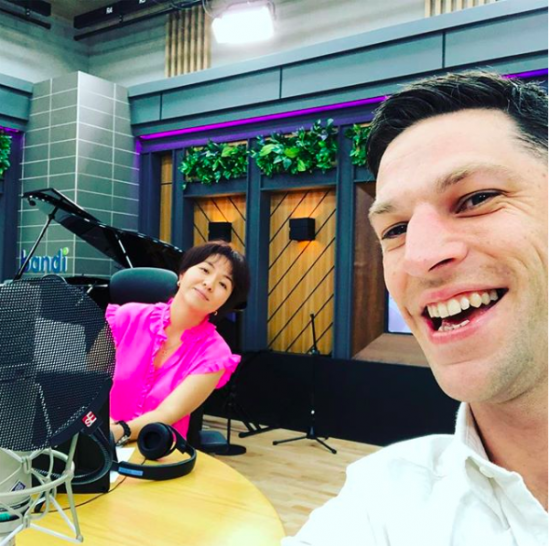
When you think about the opportunities that get extended to someone who wins a competition like the WBC, it’s a very different thing to think about than wanting to win the competition. When I was competing, my focus was, “How do I achieve a better score with this coffee? How do I communicate the message I want to convey within the confines of the scoresheet?” It was never, “What happens if you win?”
When you do win, the opportunities can be disconnected from what you’ve been working really hard to do. There’s a lot of travel, a lot of great opportunities to meet people, visit new places, and try new things, but they’re really hard to take hold of if you have other commitments. You could say that to make the most of winning a competition like this, you should be unemployed, working as a consultant, free, single, and young. I’m really happy with what I’ve done, but you don’t need to say yes to every offer.
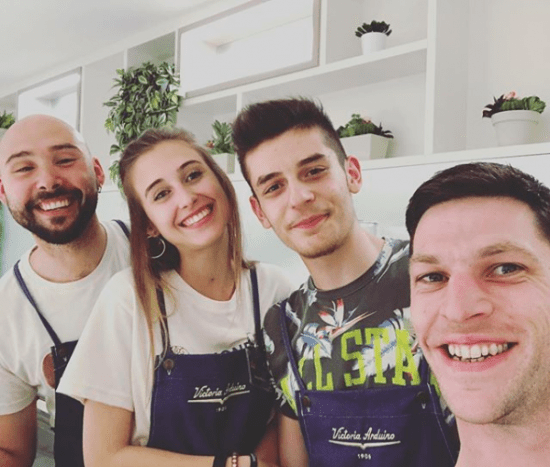
CR: Finally, big question, but what were a couple of the biggest lessons you learned this year as WBC champ?
DH: I think as a champion you need to be mindful that you get disproportionate access to the resources of the community. Everybody is much readier to talk and to listen to you, and that creates a responsibility to share some of that access when you can.
The other big one: You won’t get to do the things you want to do if you just wait for someone to ask you. If you want to achieve something in particular with that platform or with the opportunities extended to you because of it, you have to make those opportunities.
You can ask lots of people for help, you can achieve lots more because people are listening and willing to help, but if there’s something you really want to do with the title, you have to actively choose to do it. That’s maybe a little harder than saying yes or no to other opportunities.
And the real secret is that’s true even without the trophy—if you want to make something happen, make it happen. Don’t wait for permission!

